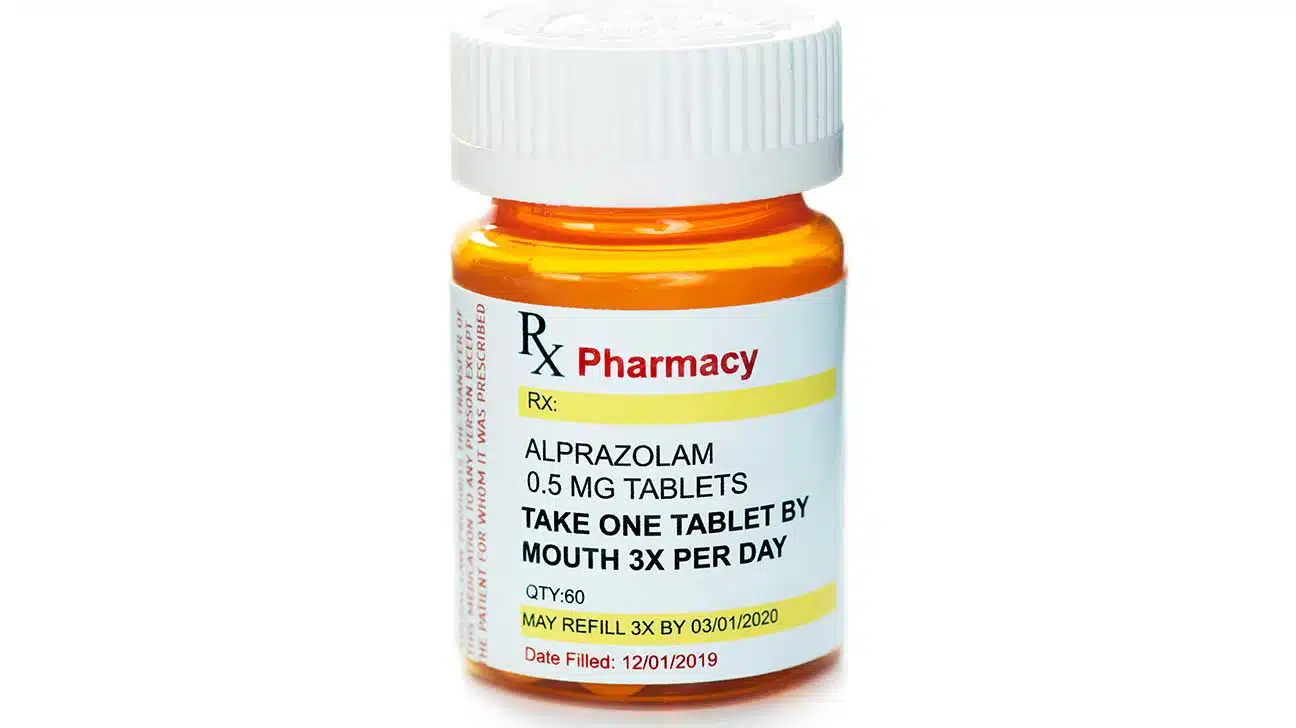
If you or a loved one regularly experience severe anxiety or panic attacks, a doctor may try prescribing you Xanax, the brand name for alprazolam.
However, in recent years it has come to light that Xanax can be a problematic prescription drug for many people. It has a number of unwanted side effects and poses a high risk for addiction or dependency.
Due to this, the use of Xanax as an anti-anxiety treatment is under increasing scrutiny from healthcare providers and the public.
Number Of Annual Alprazolam Prescriptions Nationwide
Alprazolam is one of the most commonly prescribed drugs in the United States, and it ranks even higher among psychiatric medications.
Xanax was first approved for use as an anxiety treatment in 1981, and the number of annual prescriptions began rising steadily.
In 2014, at the peak of its use, nearly 30 million Xanax prescriptions were dispensed to patients around the country, up from roughly 18 million prescriptions in 2004.
Due to the ongoing controversy over the addictive qualities of Xanax, prescriptions have started to go down. In 2020, 16.8 million Xanax prescriptions were distributed.
Over the last decade, the number of people receiving these prescriptions has also dipped, from 5 million to 3.6 million.
What Is Xanax (Alprazolam)?
Xanax belongs to a class of prescription medications known as benzodiazepines, or “benzos” for short. Other popular benzos include Klonopin, Valium, and Ativan.
Alprazolam should only be taken as directed by a doctor. It is usually prescribed for short-term medical use, but some people may take it for months or even years.
Unfortunately, Xanax and other benzos have become increasingly popular as recreational drugs. People may use these drugs on their own or mix them with other substances, like alcohol, which is particularly dangerous.
How Xanax Works
Benzos work by interacting with the central nervous system (CNS) through a naturally produced neurotransmitter called gamma-aminobutyric acid (GABA).
After taking Xanax, people experience calm, relaxed, and somewhat sedated feelings. It’s a fast-acting drug, so people may begin to feel its effects within 10 minutes.
By slowing down the central nervous system, benzos are able to reduce feelings of panic, stress, or anxiety.
What Is Xanax Typically Used To Treat?
Alprazolam and other benzodiazepines are typically used in psychiatry to treat mental health issues such as severe anxiety or panic disorders.
This can include generalized anxiety disorder (GAD), social anxiety, anxiety attacks, phobias, or other prevalent issues.
Occasionally, Xanax may be used off-label to treat insomnia or muscle tension, but this is usually a short-term solution until an antidepressant or other medication starts working.
Side Effects And Risks Of Xanax
Xanax’s potential for abuse, along with its rates of physical dependency and side effects, are largely responsible for the decrease in prescriptions over the last few years.
It has both mild and severe side effects that can range from minor inconveniences to life-threatening emergencies.
Mild side effects of alprazolam include:
- drowsiness
- dizziness
- insomnia
- memory impairment
- blurred vision
- slurred speech
- loss of coordination
- mood changes
- headaches
- difficulty focusing
- weight changes
More serious side effects of Xanax include:
- respiratory depression
- yellowed skin
- seizures
- confusion
- comas
Xanax Addiction Rates
People can become physically dependent on Xanax, meaning that they will experience withdrawal symptoms if they quit taking it, in as little as two weeks.
Physical dependency can quickly lead to addiction or improper drug use since the body will increasingly need more frequent or higher doses to feel the same effects.
Xanax abuse and addiction have been rising sharply in recent years, especially in adolescents and young adults.
People who abuse it also frequently mix it with other substances like alcohol. Polysubstance use is particularly dangerous because the side effects of mixing drugs isn’t always known.
Or, in the case of mixing alcohol and Xanax, the two substances can enhance each other’s similar side effects, sometimes causing over-sedation, which can be deadly.
Around 2% of American adults experience some form of benzodiazepine misuse or addiction.
Signs Of Alprazolam Abuse
If you are concerned that you or someone you care about is facing Xanax drug abuse, there are a few key signs to watch out for.
These can include:
- trouble with work or school
- isolation from loved ones
- financial difficulties
- sudden changes in appearance
- mood swings
- loss of interest in hobbies or activities
- sleeping too much or too little
- changes in friend groups
People with severe Xanax addictions may experience life-threatening withdrawal symptoms if they attempt to quit on their own, so it’s crucial to taper off or detox at an addiction treatment center.
Get Help For A Substance Use Disorder
If you or a loved one is living with drug addiction or physical dependency, you don’t have to face it alone. Contact us today to learn more about your recovery options.
Published on August 22, 2023
Addiction Resource aims to provide only the most current, accurate information in regards to addiction and addiction treatment, which means we only reference the most credible sources available.
These include peer-reviewed journals, government entities and academic institutions, and leaders in addiction healthcare and advocacy. Learn more about how we safeguard our content by viewing our editorial policy.
- ClinCalc
https://clincalc.com/DrugStats/Drugs/Alprazolam - National Library of Medicine
https://www.ncbi.nlm.nih.gov/pmc/articles/PMC5846112/ - WebMD
https://www.webmd.com/drugs/2/drug-9824/xanax-oral/details
